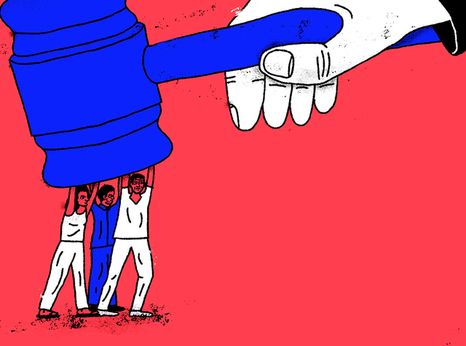Artist opposing censorship at risk

Luis Manuel Otero Alcántara has become a leading voice of opposition against Decree 349 in Cuba.
Under the Decree, all artists, including collectives, musicians and performers, are prohibited from operating in public or private spaces without prior approval by the Ministry of Culture. Individuals or businesses that hire artists without the authorization can be sanctioned, and artists that work without prior approval can have their materials confiscated or be substantially fined. Under the decree, the authorities also have the power to immediately suspend a performance and to propose the cancelation of the authorization granted to carry out the artistic activity.
Such decisions can only be appealed before the same Ministry of Culture (Article 10); the decree does not provide an effective remedy to appeal such a decision before an independent body, including through the courts.
The decree contains vague and overly broad restrictions on artistic expression. For example, it prohibits audiovisual materials that contain, among other things: “use of patriotic symbols that contravene current legislation” (Article 3a), “sexist, vulgar or obscene language” (Article 3d), and “any other (content) that violates the legal provisions that regulate the normal development of our society in cultural matters” (Article 3g). Furthermore, it makes it an offence to “commercialize books with content harmful to ethical and cultural values” (Article 4f).
International human rights law and standards require that any restriction to the right to freedom of expression,
including through art, must be provided by law and formulated with sufficient precision to avoid overly broad or
arbitrary interpretation or application, and in a manner that is accessible to the public and that clearly outlines what
conduct is or is not prohibited.
As signatory to the International Covenant on Civil and Political Rights (ICCPR), Cuba is required to refrain from
acts that would defeat the object and purpose of the treaty. Article 19 of the ICCPR specifically protects the right to
freedom of expression, which includes the “freedom to seek, receive and impart information and ideas of all
kinds…” including “in the form of art”.
Amnesty International has previously expressed concern that Decree 349 is likely to have a general chilling effect
on artists in Cuba, preventing them from carrying out their legitimate work for fear of reprisals.
Article 203 of the Penal Code, one of the provisions under which Luis Manuel appears to be charged, is inconsistent with international standards as its effect is to limit the right to freedom of expression. Amnesty International opposes laws prohibiting disrespect of heads of state or public figures, the military or other public institutions, or flags or symbols (such as lèse majesté and desacato laws).
Luis Manuel Otero was named a prisoner of conscience following his detention of 1 March. Although he was
released on 14 March, the criminal procedure against him remains open, and he remains at risk of further detention. If Luis Manuel Otero Alcántara is sent back to prison, he would revert to be a prisoner of conscience as all the charges against him stem solely from the peaceful exercise of his right to freedom of expression.
His trial was originally scheduled for 11 March 2020 but was delayed until further notice.